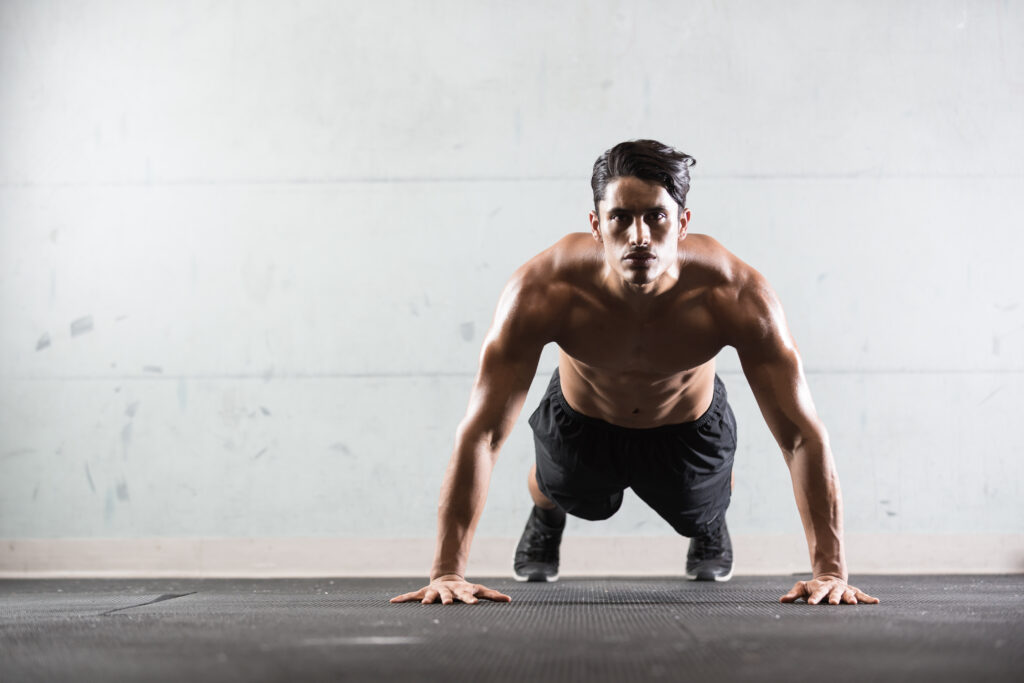You put a lot of energy into being healthy. It’s a top priority for you. But are you giving your hair this same attention? Regardless of its length and density, your hair might not be as healthy as it can be. Healthy strands stay thicker, fall out less, and can grow longer (if that’s your aim) than weak ones.
This is more than a shampoo-rinse-repeat strategy: Healthy hair comes from the decisions you make at the dinner table, what you wear while you sweat, the amount of natural oils on your scalp, and the products you put (or don’t put) in your hair. Every day, your habits and choices are affecting the health of your hair, all the way down to the follicle.
RELATED: What You Should Eat If You Want Great Hair
To ensure that you grow the strongest, healthiest hair possible, we asked New York City-based dermatologist Janet Prystowsky, M.D., for her expertise on the topic. These tips will help strengthen your hair and, in theory, preserve their place longer. You’ll find that the hair is more controllable while styling, each strand looks thicker and is less prone to falling out, and as an added bonus—you get to live a much healthier life, too.
Pay Attention to Your Scalp
We tend to think of oily hair as a bad thing. Sure, it makes you look a bit unkempt, but ultimately, the fact that your scalp is producing the oil—called sebum—is a good thing. “Sebum is good for our hair in general,” says Dr. Prystowsky. “It’s what keeps our scalp and hair cuticles soft and hydrated.” She adds, however, that excessive sebum production makes you more prone to scalp infections, thick scales, and yeast infections, all of which can make your hair fall out. But don’t worry just yet: When it gets too greasy, just shampoo it. If it isn’t too greasy yet, then a simple rinse will preserve these natural oils without drying out the scalp. Save the shampoo for when it’s most needed—every second or third day.
Dr. Prystowsky also says that if your scalp is asymptomatic, as in, exhibiting no flakiness, itching, or pain, then you’re probably in the clear as far as scalp health goes. However, if any of those symptoms exist and persist, they will compromise hair quality. At the first sign of flakes, try a dandruff shampoo to remedy the matter. If that doesn’t help, you might be suffering from something more severe like scalp psoriasis, seborrheic dermatitis, overly dry skin, or another condition. Regardless, this is when you should visit your dermatologist.
Wear It Loose While You Sweat
You’re an active guy, and while your healthy lifestyle benefits your entire body—hair included—by increasing circulation and nutrient absorption, it might also be compromising hair health in other ways. “Helmet sports, like biking, can cause friction alopecia, where the helmet rubs against the scalp,” Dr. Prystowsky says. This is when hair falls out because it rubs against something, but luckily, it isn’t permanent. If you have long hair and pull it back tight, this also can cause what’s called traction alopecia, which occurs from excessive pulling or strain. Dr. Prystowsky says that unlike friction alopecia, traction alopecia can be permanent.
RELATED: The Best Haircuts For Guys With Thinning Hair
All this sweat can settle in your scalp, too, so be sure to shampoo immediately after an intense workout, to avoid dandruff, drying, and other such conditions. Essentially, anything that might lead to inflammation of the scalp can adversely affect hair growth, Dr. Prystowsky says. This includes sunburn and allergic reactions. So make sure to wear a hat, apply hair-friendly SPF and keep your hair somewhat loose when you can.
Focus on Food, Not Supplements
As for what you eat, Dr. Prystowsky says to skip the supplements and instead take a logical approach to your diet. “The truth is that a balanced diet with healthy amounts of vegetables, proteins, and fruits is all you need,” she says. She calls this prescription “a wide, colorful diet”, which should itself supplement the body with the nutrients necessary for healthy hair growth. “It’s hard to be deficient in the nutrients necessary for healthy hair,” she adds. “There’s no reason to think that an overabundance will make a difference.”
However, Dr. Prystowsky notes that vegetarians and vegans should be proactive about protein intake to offset a lack of meat, since proteins are essential to thicker-looking and stronger hair.
RELATED: 3 Celebrity Hairstyles You Should Steal
Dial Back on Products That Can Dry Out Your Hair
We’ve already talked about the importance of shampooing less: Only do it when your hair and scalp are greasy. It’s not necessary to wash your hair every day, since shampoo can dry out and strip the hair of its healthy natural oils. A simple rinse will suffice between when you shampoo at least two to three times a week. However, you still should condition your hair around three to four times a week, depending on your hair length, but never with a 2-in-1 shampoo/conditioner.
The conditioner should either stand on its own, or it should follow a wash. It should never precede shampoo or be mixed with it. Its job is to restore the nutrients and moisture lost from the shampoo, and to generally nourish the hair. When mixed with shampoo, it doesn’t have a chance to properly do its job.
This article originally appeared on Men’s Health












